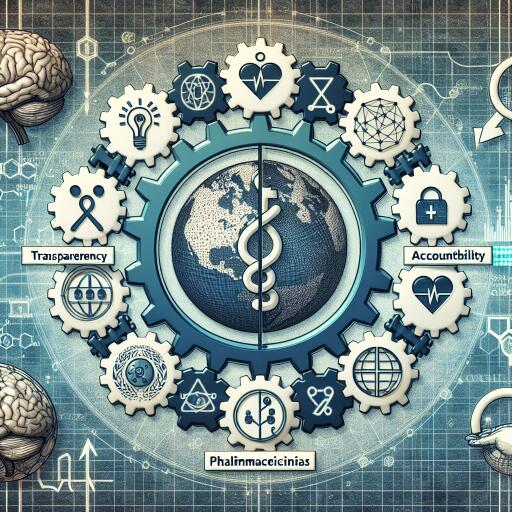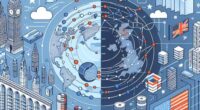WHO Unveils Ethical Framework to Govern AI’s Role in Pharmaceutical Development
The World Health Organization (WHO) recently released an influential document titled “Brand new Interplay between Artificial Intelligence and Drug Discovery and Distribution.” This groundbreaking document is set to act as a cornerstone, potentially transforming artificial intelligence (AI) into a pivotal catalyst for future advancements in pharmaceutical and drug delivery systems. However, integrating AI into these critical sectors introduces ethical and governance challenges affecting all realms of human life.
The surge of AI within the pharmaceutical sector heralds a new era of drug discovery, clinical research, and distribution. The WHO’s report acknowledges AI’s potential to revolutionize the search for new candidate molecules and repurpose existing drugs for new treatments, thereby streamlining the drug discovery process to be faster and more cost-effective. Beyond these remarkable benefits, AI is reshaping biomanufacturing processes and aiding compliance with stringent regulations like the United States Drug Supply Chain Security Act (DSCSA).
Despite the numerous advantages, the advent of AI in healthcare is not without its challenges. Ethical and safety concerns, as outlined in the WHO’s document, encompass issues of bias, patient safety, and the potential misuse of AI in biosafety and bioterrorism. The inherent biases and prejudices of humanity can be unwittingly embedded into AI systems, leading to discrimination that affects individuals and ethnic groups within healthcare settings. Moreover, the risks associated with unverified algorithms and the potential for AI to be weaponized in the creation of chemical and biological weapons necessitate a robust ethical framework and global cooperation for governance.
To address these challenges, the WHO emphasizes the need for ethical protocols and regulatory frameworks aimed at scrutinizing AI algorithms in practical applications, establishing international safety and efficacy standards, and enhancing transparency throughout the AI development process. Such measures are crucial for protecting individual rights and ensuring that technological advancements do not compromise ethical principles.
In light of these considerations, the WHO advocates for the establishment of a global governance system to facilitate data sharing and ensure the equitable distribution of AI’s benefits. The goal is to democratize access to AI technologies, particularly for communities in the developing world that currently lack such resources. This initiative is aimed at achieving AI equity, making groundbreaking technology accessible and beneficial to all, regardless of geographical or economic barriers.
As the commercial pharmaceutical industry increasingly embraces AI, the WHO’s call for ethical management and sound governance is both relevant and timely. The organization draws parallels to the Universal Declaration of Human Rights, proposing a foundational framework that sets strict ethical boundaries on AI’s application in healthcare. This initiative underscores the disruptive potential of AI in the pharmaceutical industry and the imperative of adhering to ethical guidelines.
The WHO’s guidelines offer a vision for the future, laying out the definitions for AI integration and appealing to stakeholders across the pharmaceutical industry and governments worldwide. By establishing ethical principles of equity and governance, there is a strong foundation for using AI in healthcare that ultimately serves humanity’s best interests.
In conclusion, the efficient application of AI in healthcare, guided by the WHO’s ethical framework, promises to bring about a transformative leap in how we approach drug development and delivery. For the pharmaceutical industry, adhering to these principles is not just about compliance but about fostering innovation that truly benefits humanity.










